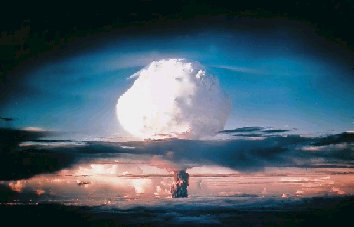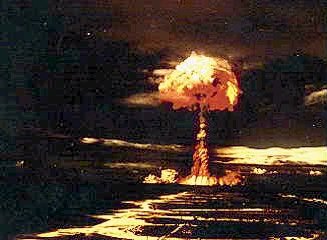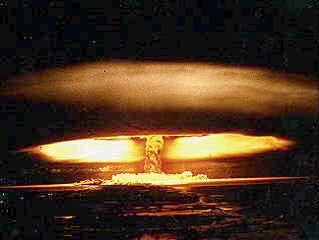
Prof. Ugo Fano, Fermi’s student used to tell about Enrico:” He was not only an ingenious theoretician*), an extremely clever experimentator but also anexcellent organizer”. The „Manhattan” programme, which cost 2 million dollars (at that time) would not succeed without Fermi.
In summer 1934, Fermi’s students started research on the artificial radioactivity induced by neutron bombardment of, in the alphebetic order, Al, Ag and so on. However, after having informed Fermi, they couldn’t repeat these results – it seemed that the radioactivity (artificial) of silver did not appear when the experiment was moved from a temporary wooden desk to a marble one.
Enrico Fermi glanced at the experiment and decided to use paraffin, not the lead, to slow down neutrons. In the afternoon of the same day (22.10.1934) an acquarium with golden fishes was placed on the path of neutrons - a track to the nuclear reactor was opened.
The Fermi’s pile started the first run on Dec.1st,1942 in the laboratory under the university stadium in Chicago.
With Fermi’s (and Dirac’s) name a quantum statistics is called, and accordingly, particles which are described by it ( fermions), in consequence also an energy level in solids and a surface determined by this level; and heavy atoms model (Thomas-Fermi’s). Fermi explained beta decay, predicted neutrino and brough a significant contribution to the mathematical formulation of the quantum electrodynamics.
After receiving of the Nobel prize (1938) he did not come back to Italy (his wife was of Jewish origin); he became a scientific chief of the „Manhattan” project – construction of the first nuclear reactor, and then the first atomic bomb.
The biggest center for nuclear research in USA in Batavia (Illinios) is called „Fermilab”.
[1] A. De Gregorio, Sapere, Aprile 2002

During the first trial nuclear explosion (16.07.1945, Los Alamos) Fermi on his own tried to estimate its power - by throwing in the air pieces of paper and measuring where they falled down. |

|

|
Dying in a hospital, he continued to write precisely his diary on the radiation disease - like still conducting a scientific experiment. |